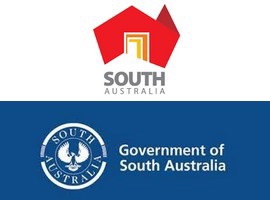A state first  for South Australia, the post-harvest treatment facility will provide inspection, quarantine, and treatment of fruit and vegetable produce, which is vital for exporting SA’s produce globally.
for South Australia, the post-harvest treatment facility will provide inspection, quarantine, and treatment of fruit and vegetable produce, which is vital for exporting SA’s produce globally.
The industry-led initiative is funded through $9.8 million in Federal Government funding, $4.2 million from the State Government, and $36 million from industry. The facility will use pressure cooling and treatment technology and will be the largest-scale multi-treatment and inspection facility in South Australia.
Once completed, the project will unlock an additional $100M in fresh produce exports over a 5-year period, creating up to 172 direct and indirect ongoing jobs and assisting in cost reduction for the state’s primary producers.
Currently, South Australian producers are required to send their produce to Victoria or Queensland for treatment. This new facility is set to reduce those transport costs and improve profitability for SA producers, which in turn will lower product wastage and help reduce the cost of produce at the supermarket.
The project will establish a post-harvest treatment service with pressure cooling and treatment technology, both of which are required to enable the export of South Australian produce to more overseas destinations.
SA growers have previously faced challenges in selling to certain markets in times of fruit fly outbreaks. In 2020 and 2021, SA had a Med Fly outbreak in metropolitan Adelaide and is currently experiencing a prolonged Q-Fly outbreak in parts of the Riverland.
Built on the site of the SA Produce Market at Burma Road, Pooraka, the facility will play a vital role in protecting and expanding the state’s growing $1.4 billion horticultural industry.
There are restrictions within Australia and export countries on what produce is allowed to enter each state or country based on what pests and diseases are prevalent in the region where the fruit is grown. With the current Q-fly outbreak in the Riverland, produce cannot be sent from the Riverland to other parts of South Australia, Tasmania, or WA, where Q-fly does not have a presence unless it is treated.
The new biosecurity precinct will ensure that produce coming from the fruit fly-impacted areas within the state are able to be inspected, quarantined, and treated if required before the produce is distributed overseas and to retailers across SA, WA, and NT.
With construction commencing in February 2024, this new biosecurity precinct will provide a more sustainable alternative and has the ability to increase the shelf life of fresh produce for export purposes.
The facility will also support and grow key industries identified by the State Government, such as health and medical.
For more information: premier.sa.gov.au
